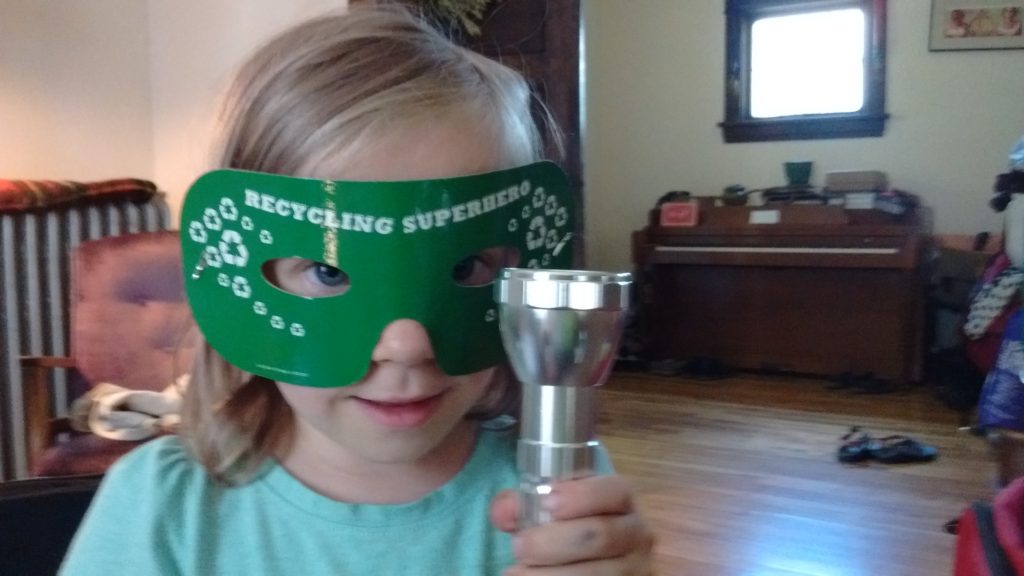Guest post by Noel Holston
I’m writing this for my granddaughter, but I’m not telling her. I don’t want her to be scared.
Zinnia is 7 years old. She’s small for her age but otherwise precocious. She reads above her grade level and trampolines like a jumping bean. Other kids her age may make “yuck” faces at sight of spinach or broccoli, but Zin already relishes oysters, kalamata olives and “stinky” cheeses. Her favorite bedtime lullaby is “The Sounds of Silence,” which I thought was beyond precocious until her dad explained that the Simon and Garfunkel song is featured in her favorite movie, Trolls. She’s watched it so many times, she knows it by heart.

In the early 1990s, long before Zinnia was born, I was starting to worry about the impact of the greenhouse gases we were belching into the atmosphere and the plastic litter that we sent floating down the rivers and into the seas. I wrote a song about our dangerous notion that we could consume and pollute all we wanted and then, if things got really bad, just fly away. It began:
The planets and the stars
Will not be ours
Except, of course, to dream on
For all our Star Trek fantasies
This island Earth will be our home
Our space-travel capabilities have improved in the intervening years, but we still haven’t found a destination planet enough like our big blue marble to aim for or developed the means for even a re-con party to get there.
In the meantime, we’ve created a floating plastic garbage patch twice the size of Texas in the Pacific Ocean. We’re experiencing record high temperatures. Hellish fires are raging from Brazil to Siberia, and hurricanes and typhoons are growing in size and intensity. Hurricane Dorian left much of the Bahamas looking like a land fill.
As if these inconvenient truths aren’t troubling enough, we know from credible scientific research and computer modeling that if we don’t significantly reduce greenhouse gas emissions, the annual average global temperature could increase nine degrees Fahrenheit or more, compared with preindustrial temperatures, by the end of this century.
The year 2100 seems a long way off. Most of you who are reading this won’t be around when that new millennium is rung in. I surely won’t be. But Zinnia and my other grandchild, Jackson, will be around to suffer for our short-sightedness and stupidity. So will millions of other kids here and around the world.
Zinnia is just beginning to figure out what she wants to do with her life. Maybe she’ll become a cross-fit trainer like her mom or a podcast producer like her dad. Maybe she’ll be a doctor or a chef or a scientist or a maker of animated films like Trolls. Maybe she’ll have kids herself.
I want her to have those opportunities. I want her to be living on a planet at least as beautiful and diverse and healthy as the one I grew up on – and, if at all possible, better.
No challenge we are facing or issue we are dealing with today is more important than our acting like responsible, caring adults and implementing every measure we can imagine to limit further physical deterioration of the only planet we have.
Not gun control or reproductive rights. Not Latin American immigrants or North Korea’s nuclear weapons. The environment. Our environment. Our incredibly complex, life-giving, life-sustaining, shared environment.
We need to do this whether we believe we’re God’s appointed stewards or simply because we recognize it’s stupid and suicidal to foul our nest. Pick your rationale, but make reversing damage to the Earth a personal and political priority.
We were making encouraging progress not that long ago, prioritizing cleaner energy sources, discouraging pollution, setting aside nature preserves both land and sea. Now, under new “leadership,” we are in spiteful retreat. Our president didn’t even bother attending the climate change panel at the recent G-7.
There are those among us, including some rich and powerful people, who insist that the dire warnings of scientists like those who compiled the Fourth National Climate Assessment are a hoax or an anti-capitalist plot. The former claim is an absurdity that would require a conspiracy of millions of scientists who’ve never met. The latter ignores the commerce to be engendered and the profit to be made from cleaner industry.
If the scientists turn out to be wrong, we will still be living a cleaner, healthier world as the 21st Century speeds along. If they’re correct in their predictions and we’ve allowed our leaders to shirk their responsibility, we and our children and grandchildren will be facing a rising tide of misery.
I would accuse the deniers of playing Russian roulette with our little ones’ lives, but that analogy overestimates the odds in our favor.
Note: Noel Holston is a freelance writer who lives in Athens, Georgia. He’s a contributing essayist to Medium.com, TVWorthWatching.com, and other websites. He previously wrote about television and radio at Newsday (200-2005) and, as a crosstown counterpart to the Pioneer Press’s Brian Lambert, at the Star Tribune (1986-2000). He’s the author of “Life After Deaf: My Misadventures in Hearing Loss and Recovery,” which is scheduled for publication fall of 2019 by Skyhorse.

This is really beautiful and sad, Noel. I hope we can get on track for a happier ending starting in 2021.
Amen, Joe.
The late psychonaut Terence McKenna used to say that there should be designated an eighth deadly sin, and that would be: destroying the planet for those who come after us. Collectively we are all responsible for avoiding this.
well said